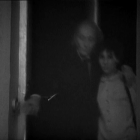 The sixth episode of Doctor Who airs on the BBC. The Survivors is part two of the story now collectively known as The Daleks, the first story to feature the Doctor’s future arch-rivals. The Daleks are revealed in full, and their distinctive voices are heard, for the first time here, and schoolchildren begin imitating Daleks on playgrounds. Unexpected by anyone at the BBC, Doctor Who is suddenly a bona fide smash hit.
The sixth episode of Doctor Who airs on the BBC. The Survivors is part two of the story now collectively known as The Daleks, the first story to feature the Doctor’s future arch-rivals. The Daleks are revealed in full, and their distinctive voices are heard, for the first time here, and schoolchildren begin imitating Daleks on playgrounds. Unexpected by anyone at the BBC, Doctor Who is suddenly a bona fide smash hit.
This timeline entry leads to an entry covering this entire Doctor Who serial; there are plans to write new episodic entries in the future. You can support this effort!
Order Earl Green’s book VWORP!1 from theLogBook.com Store

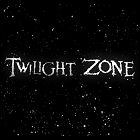 The 134th episode of Rod Serling’s The Twilight Zone airs on CBS. Edward Andrews stars.
The 134th episode of Rod Serling’s The Twilight Zone airs on CBS. Edward Andrews stars.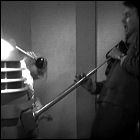 The seventh episode of Doctor Who airs on the BBC. The Escape is part three of the story now collectively known as
The seventh episode of Doctor Who airs on the BBC. The Escape is part three of the story now collectively known as 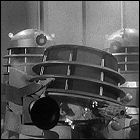 The eighth episode of Doctor Who airs on the BBC. The Ambush is part four of the story now collectively known as
The eighth episode of Doctor Who airs on the BBC. The Ambush is part four of the story now collectively known as 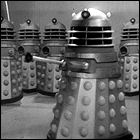 The ninth episode of Doctor Who airs on the BBC. The Expedition is part five of the story now collectively known as
The ninth episode of Doctor Who airs on the BBC. The Expedition is part five of the story now collectively known as 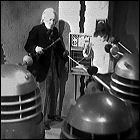 The tenth episode of Doctor Who airs on the BBC. The Ordeal is part six of the story now collectively known as
The tenth episode of Doctor Who airs on the BBC. The Ordeal is part six of the story now collectively known as 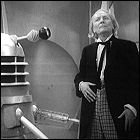 The 11th episode of Doctor Who airs on the BBC. The Rescue (not to be confused with the second-season story of the same name) is part seven of the story now collectively known as
The 11th episode of Doctor Who airs on the BBC. The Rescue (not to be confused with the second-season story of the same name) is part seven of the story now collectively known as 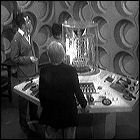 The 12th episode of Doctor Who airs on the BBC. This is the first part of the story now collectively known as
The 12th episode of Doctor Who airs on the BBC. This is the first part of the story now collectively known as 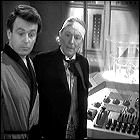 The 13th episode of Doctor Who airs on the BBC. The Brink Of Disaster is part two of the story now collectively known as
The 13th episode of Doctor Who airs on the BBC. The Brink Of Disaster is part two of the story now collectively known as 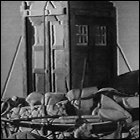 The 14th episode of Doctor Who airs on the BBC. This is part one of the story now collectively known as
The 14th episode of Doctor Who airs on the BBC. This is part one of the story now collectively known as 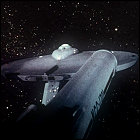 Television writer Gene Roddenberry, who has already written scripts for shows such as Have Gun, Will Travel, writes his first-draft series proposal for a new hour-long science fiction drama, which he calls Star Trek. The series involves the starship S.S. Yorktown, commanded by Captain Robert April. Roddenberry will spend several months refining his concept before it is bought by Desilu Studios and shopped around to the American television networks. At the time he’s writing the pitch, Roddenberry is still overseeing his latest TV creation, a military series called The Lieutenant, which has enjoyed decent ratings but is leaving its network, NBC, nervous with its tendency to deal directly with issues related to the widening conflict in Vietnam.
Television writer Gene Roddenberry, who has already written scripts for shows such as Have Gun, Will Travel, writes his first-draft series proposal for a new hour-long science fiction drama, which he calls Star Trek. The series involves the starship S.S. Yorktown, commanded by Captain Robert April. Roddenberry will spend several months refining his concept before it is bought by Desilu Studios and shopped around to the American television networks. At the time he’s writing the pitch, Roddenberry is still overseeing his latest TV creation, a military series called The Lieutenant, which has enjoyed decent ratings but is leaving its network, NBC, nervous with its tendency to deal directly with issues related to the widening conflict in Vietnam.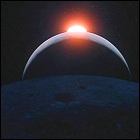 Director Stanley Kubrick writes to author Arthur C. Clarke, initiating a lengthy discussion about “the proverbial really good science fiction movie”, a discussion which eventually leads to the movie (and novel) 2001: a space odyssey. Kubrick’s letter mentions that he is particularly interested in exploring the theme of the effects that first contact with an alien race would have on humanity.
Director Stanley Kubrick writes to author Arthur C. Clarke, initiating a lengthy discussion about “the proverbial really good science fiction movie”, a discussion which eventually leads to the movie (and novel) 2001: a space odyssey. Kubrick’s letter mentions that he is particularly interested in exploring the theme of the effects that first contact with an alien race would have on humanity.